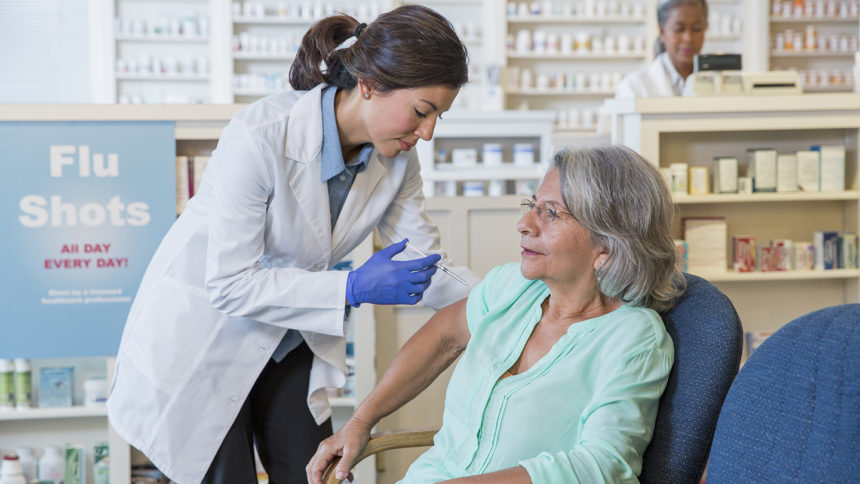
Pharmacy providers will continue to have liability immunity when administering COVID-19 and vaccinations, treatments and tests after the end of the Public Health Emergency, the Department of Health and Human Services announced Friday.
These providers were authorized to administer COVID-19 vaccines and tests in October 2020, and greenlit to administer COVID-19 treatments beginning in September 2021. Liability immunity under the Public Readiness and Emergency Preparedness (PREP) Act ensures that they are protected from legal claims by the recipients. HHS will amend the PREP Act in order to extend this protection through December 2024 to pharmacists, pharmacy interns and pharmacy technicians.
The extension will cover administration of COVID-19 and seasonal influenza vaccines and COVID-19 tests, “regardless of any [United States government] agreement or emergency declaration,” HHS stated in a new fact sheet.
There will also be no change to the liability immunity offered under the PREP Act to pharmacists, pharmacy technicians and pharmacy interns who dispense authorized COVID-19 treatments, such as the antivirals Paxlovid and Lagevrio.
On the other hand, once products are no longer distributed under a USG agreement, PREP Act coverage will not extend to providing COVID-19 vaccinations across state lines by pharmacy team members, nor vaccination by non-traditional providers such as recently retired providers and students.
Ensuring widespread access
PREP Act flexibilities and protections were meant to ensure broad and timely public access to COVID-19 vaccines, treatments and tests, and pharmacy advocates have lobbied to keep them in place.
B. Douglas Hoey, CEO of the National Community Pharmacists Association, said that pharmacy teams and other supply chain participants have administered and reported nearly 302 million doses of COVID-19 vaccines during the existence of the federal government’s pandemic vaccine program.
“Countless lives have been saved because of these efforts,” said Hoey, whose organization represents long-term care pharmacies among its members. “Ensuring patients can keep accessing these and other important health care services at their local community pharmacy is critical for millions of Americans.”
Coverage for seniors
The American Pharmacists Association, meanwhile, is urging stakeholders to continue pushing for a permanent payment pathway for these services under Medicare Part B, in order to continue providing convenient access for seniors.
H.R. 1770, the Equitable Community Access to Pharmacist Services Act (ECAPS) would “authorize pharmacists to provide care and receive reimbursement for pandemic-related services for our nation’s seniors,” the organization has explained.
Related articles:
Nursing home study is first to affirm fed’s choice to prioritize residents, staff for COVID vaccines
On-site clinics helped to boost vaccine uptake in assisted living, pharmacy partnership study finds
Initial vaccine shots trigger 48% drop in nursing home COVID cases in first major study (2021)
Driven by pandemic lessons, CDC advisers mull endorsing high-dose flu vaccines for seniors
LTC clinicians cheer pandemic milestone: Federal approval of first COVID-19 vaccine (2021)




